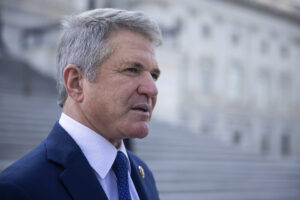The Dictatorship
Why most Americans are rooting against the Kansas City Chiefs

Super Bowl LIX is upon us, and outside of Kansas City and Philadelphia, sports fans’ attitude toward this year’s matchup seems to be a collective groan. Ticket prices, though still exorbitant, are thousands of dollars cheaper than last yearand fans everywhere seem to be rooting for the asteroid. On its face, this makes sense: Eagles fans have a rather earned reputationeven if the team has a running back who is an explosive talent and genuinely one of the most likable athletes in professional sports. As for the Chiefs, they’ve fully entered their villain erawith fans loving to hate the NFL’s latest formidable dynasty.
Just five years ago, the Chiefs were largely celebrated for their win in Super Bowl LIV, the title that launched their dynasty. But a recent Economist/YouGov poll shows that more Americans are rooting against Kansas City than for them. It’s understandable that Americans are growing weary of seeing Kansas City in the Super Bowl; this will be the Chiefs’ fifth appearance in the last six years, they’ve won three of the last five, and they’re going for their third Super Bowl win in a row on Sunday, a feat that’s never been achieved. Every great team that reaches the level of perennial success the Chiefs have enjoyed eventually suffers this backlash, no matter the decade. Just ask the New York Yankees, Los Angeles Lakers, Golden State Warriors and most recently in the NFL, the New England Patriots.
When a small-market team like the Chiefs keeps winning, fans of other teams can’t blame the system.
Columnists everywhere have explored the various reasons for this phenomenon, where dynasties become more disliked the longer their run. There are certainly psychological and cultural factors at play: As sports fans, we like to root for the underdog, and when it’s not our team that’s constantly winning, we see that dominance as undeserved. The saturation of coverage certainly hasn’t helped either. And yes, politics might play a slight role here, though I tend to think that’s overstated. Liberal-leaning fans have taken issue with Chiefs quarterback Patrick Mahomes’ wife Brittany’s seeming support of Donald Trump on social media. Conservative-leaning fans aren’t fond of Taylor Swift, who endorsed Joe Biden and Kamala Harris in the past two presidential elections and is dating Chiefs tight end Travis Kelce.
But I think another factor is at play here, one peculiar to football. As sports fans, we’ve all bought into this belief that the NFL is a bastion of paritya shining example of fairness for other leagues to follow. But that belies reality. According to the Harvard Sports Analysis Collectiveof the four major North American men’s leagues, the NHL is actually the league that boasts the most parity. The NFL is third, just below MLB. And as The Athletic’s Jayson Stark noted Thursday, teams with Mahomes, Tom Brady and Peyton Manning at quarterback have appeared in 12 of the last 14 Super Bowls.
In baseball, when teams like the Los Angeles Dodgers win multiple championships, it’s easy to point to the perceived unfairness in MLB, which has no salary cap. Big-market and wealthier teams can afford the best players, so fans of small-market teams can simply blame the system. The NFL has a hard salary cap, so richer teams can’t wildly outspend others. When a small-market team like the Chiefs keeps winning, fans of other teams can’t blame the system.
A sportswriter friend who hails from Kansas City has an interesting theory: Part of the hate is really more frustration, annoyance and resentment, particularly from fans of other small-market teams, who see the Chiefs’ dynasty and think, “That could be us.”
We’ve been conditioned to think of football as the fairest sport — the sport of true meritocracy, not legacy and wealth-based success — so when one team constantly wins, it catches us off guard. How can a dynasty exist in a league with features meant to level the playing field, like revenue sharing and a hard salary cap?
It’s easy to hate the Chiefs and to want to see them toppled, but their dynastic run deserves as much admiration as annoyance.
That might be why fans have turned on the Chiefs so sharply. It also explains why, whereas the Yankees and the Lakers get accused of buying championships, the criticism this week is that the referees are in the bag for the Chiefs. That accusation has been so widespread that both the NFL referees union and NFL Commissioner Roger Goodell felt compelled to respond.
But the Chiefs have built their dynasty squarely within the rules, thanks in large part to front-office savvy. Yes, Mahomes has one of the more team-friendly contracts in the league, restructuring his deal before the 2023 season to receive less guaranteed money and allow the Chiefs more salary cap flexibility. But the organization has also simply been better than most in continuing to build around him.
In 2022, Kansas City traded star wide receiver Tyreek Hill to Miami for five draft picks as Hill sought a massive contract extension. The Chiefs used two of those picks on cornerback Trent McDuffie and safety Chamarri Conner, both now part of one of the league’s top defenses. They’ve signed low-cost veterans like Kareem Hunt, JuJu Smith-Schuster and Mecole Hardman to round out their roster. The majority of their starters are homegrown — only two of their defensive starters weren’t drafted in-house — which speaks to just how well general manager Brett Veach and his team scout and develop talent. They’re winning because of great management — and what could be more meritocratic than that?
It’s easy to hate the Chiefs and to want to see them toppled, but their dynastic run deserves as much admiration as annoyance. I’ll personally be holding my nose to root for the Eagles — as a Giants fan, I’d like to see Saquon Barkley get a well-deserved title. But remember that every dynasty eventually becomes the villain simply because we don’t like to admit when greatness is due. We hate ’em ’cause we ain’t ’em.
Kavitha A. Davidson is an Emmy-winning sports journalist from New York. She was most recently a correspondent on HBO’s “Real Sports with Bryant Gumbel.” She was previously a reporter and columnist at ESPN, The Athletic, and Bloomberg.
The Dictatorship
Fed governor Cook asks appeals court to reject White House’s bid to remove her from Fed board
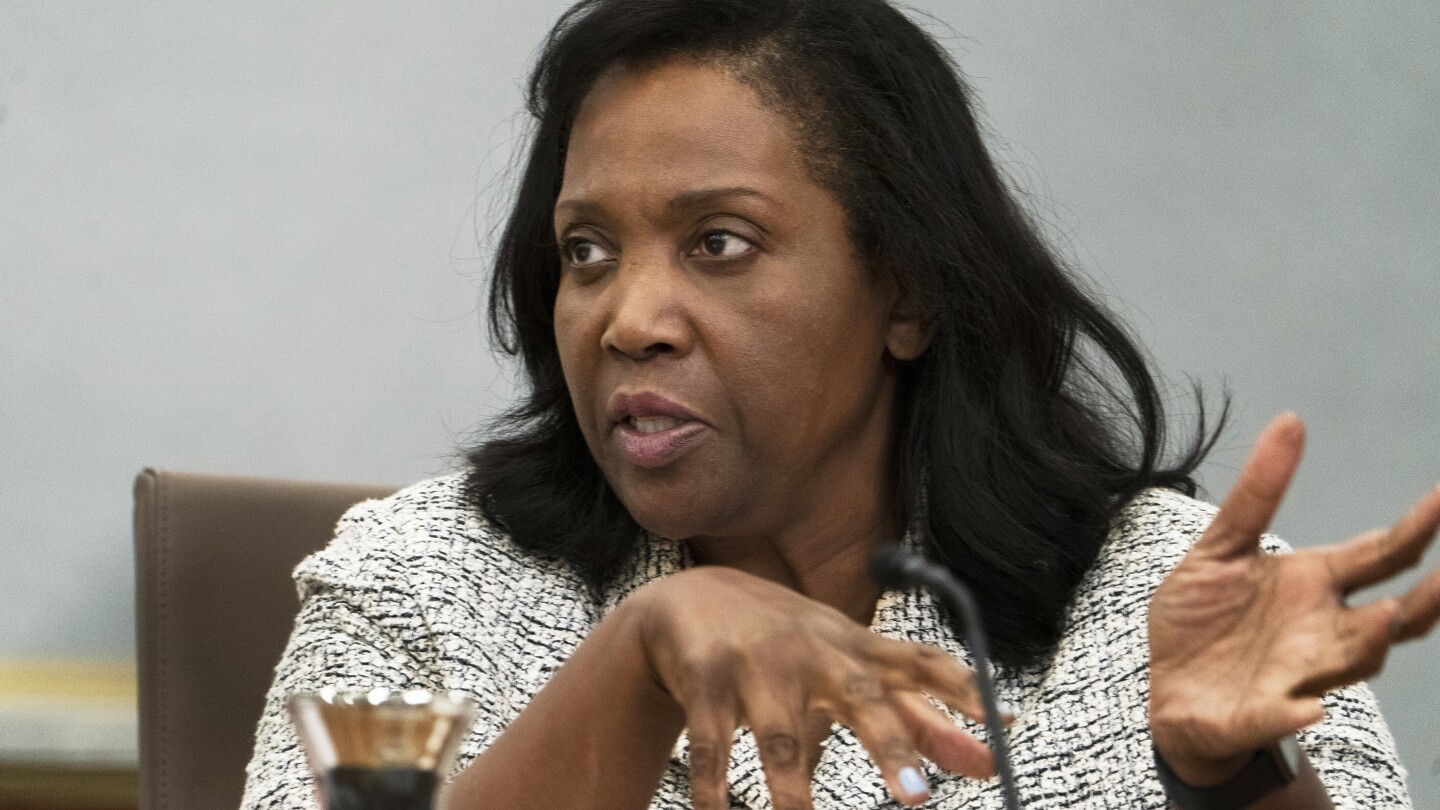
Federal Reserve Governor Lisa Cook is asking a U.S. appeals court to reject the Trump administration’s latest bid to remove her from her post ahead of the central bank’s next vote on interest rates.
In a filing with the court Saturday, attorneys on behalf of Cook asked the court to refuse an emergency request by the Trump administration for a stay of a lower court ruling that would clear the way for President Donald Trump to remove Cook from the Federal Reserve’s board of governors.
Lawyers for Cook argue that the Trump administration has not shown sufficient cause to fire her, and stressed the risks to the economy and country if the president were allowed to fire a Fed governor without cause.
“A stay by this court would therefore be the first signal from the courts that our system of government is no longer able to guarantee the independence of the Federal Reserve. Nothing would then stop the president from firing other members of the board on similarly flimsy pretexts. The era of Fed independence would be over. The risks to the nation’s economy could be dire,” according to the filing.
The court has given the Trump administration the option to respond to Cook’s filing by 3 p.m. Eastern on Sunday.
At stake is whether the Trump administration will succeed in its extraordinary effort to shape the board before the Fed’s interest rate-setting committee meets Tuesday and Wednesday. At the same time, Senate Republicans are pushing to confirm Stephen MiranPresident Donald Trump’s nominee to an open spot on the Fed’s board, which could happen as soon as Monday.
Trump has accused Cook of mortgage fraud because she appeared to claim two properties as “primary residences” in July 2021, before she joined the board. Such claims can lead to a lower mortgage rate and smaller down payment than if one of them was declared as a rental property or second home.
Cook has denied the charges and sued the Trump administration to block her firing.
On Tuesday, U.S. District Court Judge Jia Cobb ruled the administration had not satisfied a legal requirement that Fed governors can only be fired “for cause,” which she said was limited to misconduct while in office. Cook did not join the Fed’s board until 2022.
The administration then appealed the decision and asked for an emergency ruling reversing the lower court order by Monday. In their emergency appeal, Trump’s lawyers argued that even if the conduct occurred before Cook’s time as governor, her alleged action “indisputably calls into question Cook’s trustworthiness and whether she can be a responsible steward of the interest rates and economy.”
If the Trump administration’s appeal succeeds, Cook would be removed from the Fed’s board until her case is ultimately resolved in the courts, and she would miss next week’s Fed meeting, when the central bank is set to decide whether to reduce its key interest rate.
If the appeals court rules in Cook’s favor, the administration could seek an emergency ruling from the Supreme Court.
The Fed is under relentless pressure from Trump to cut rates. The central bank has held rates steady since late 2024 over worries that the Trump administration’s unpredictable tariff policies will reignite inflation.
Last month, Fed Chair Jerome Powell signaled that Fed officials are increasingly concerned about weaker hiring, setting the stage for a rate cut next week. Most economists expect the Fed will cut its benchmark interest rate by a quarter-point to about 4.1%.
When the Fed reduces its key rate, it often, over time, lowers borrowing costs for mortgages, auto loans, and business loans. Some of those rates have already fallen in anticipation of cuts from the Fed.
The Dictatorship
Trump’s economy takes a toll on middle-class Americans as his poll numbers on economics fall
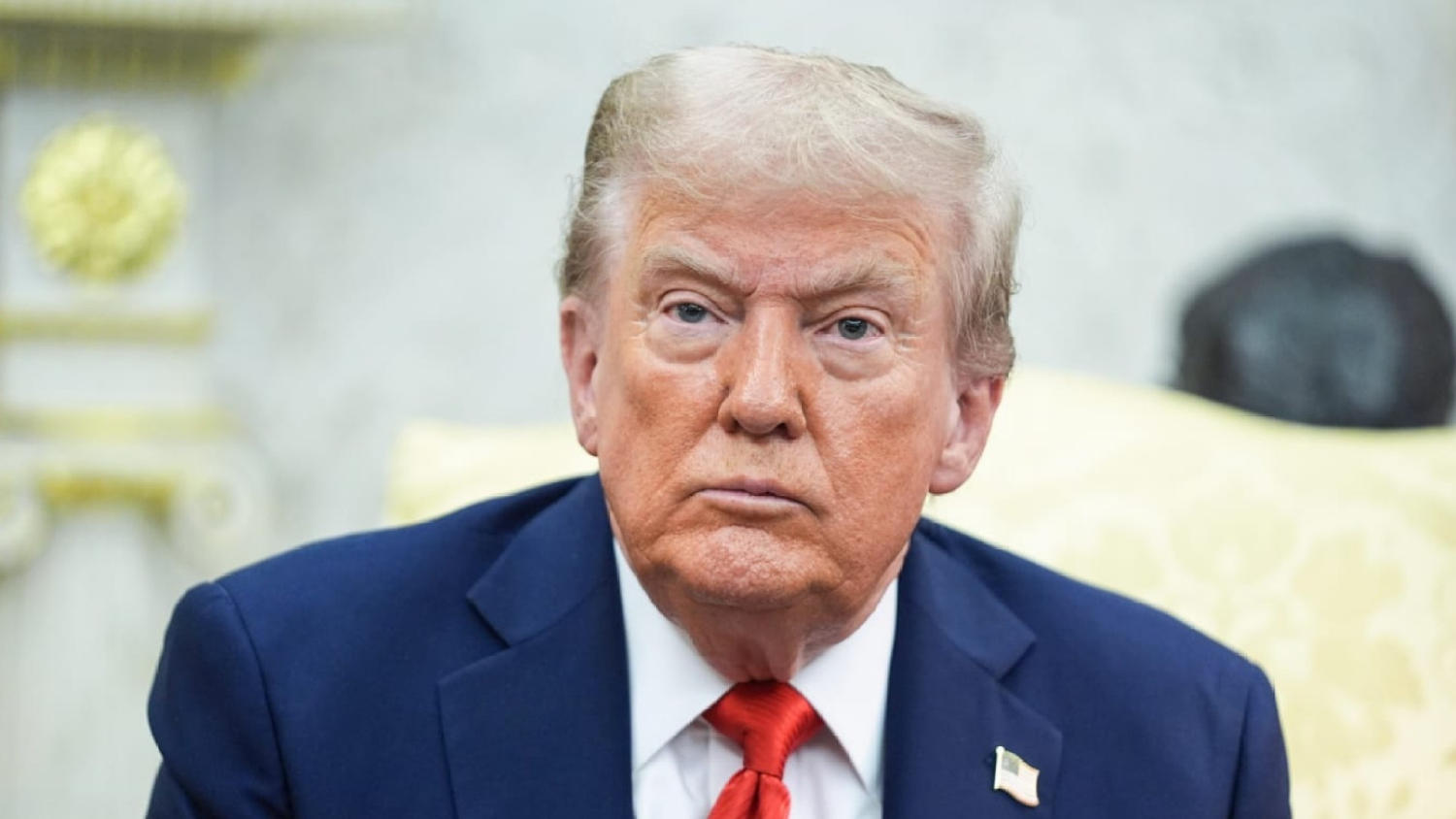
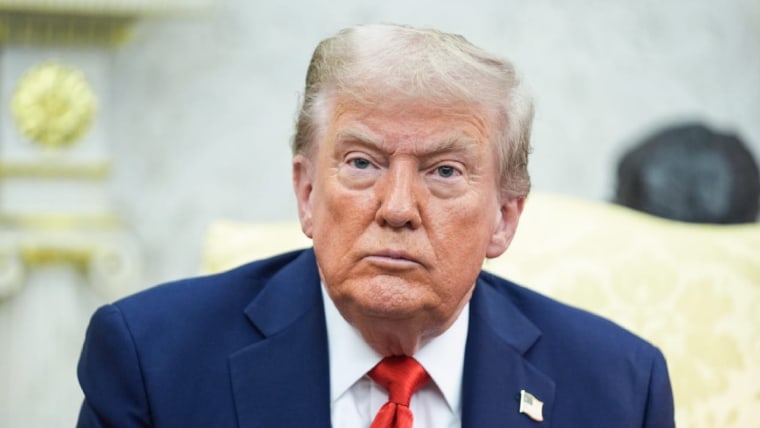
-
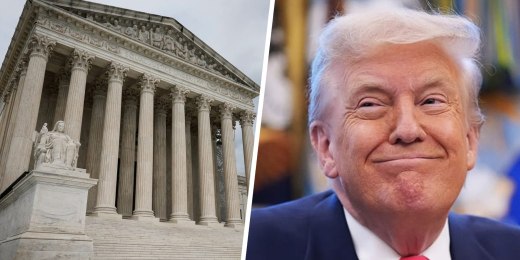
Trump’s winning streak: Law professor breaks down his Supreme Court shadow docket victories
07:03
-
Now Playing

-
UP NEXT

How social media can have an influence in attempted assassinations and mass shootings
11:38
-
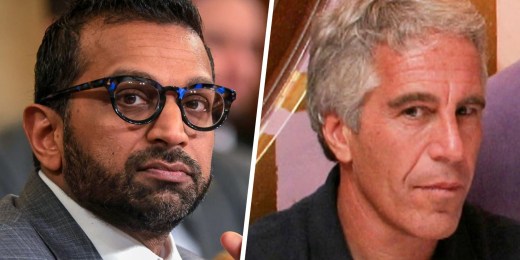
What Congress should ask FBI Director Patel about in next week’s Epstein files deposition
06:23
-
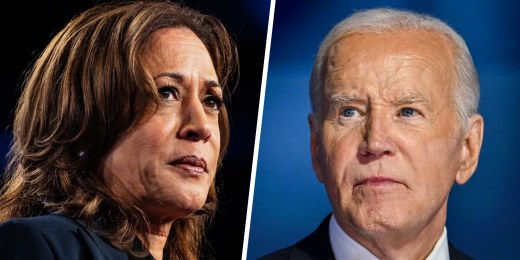
Fmr. Vice President Harris shares internal debate on asking Biden to drop from race early in memoir
05:56
-
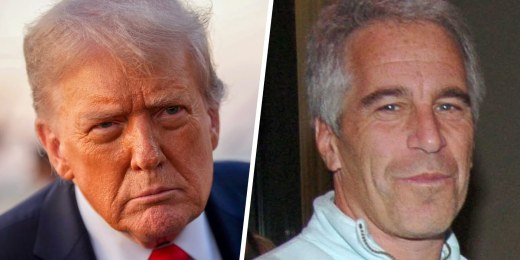
Trump changes tune on Epstein’s birthday book as Dem lawmakers push for files release
06:00
-
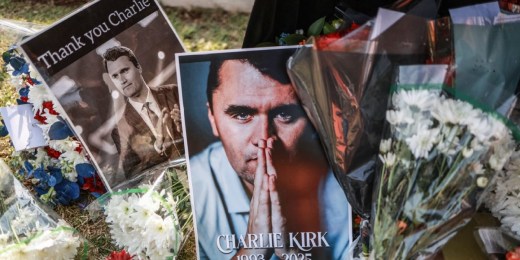
How the killing of Charlie Kirk could change security protocols for political figures
08:30
-
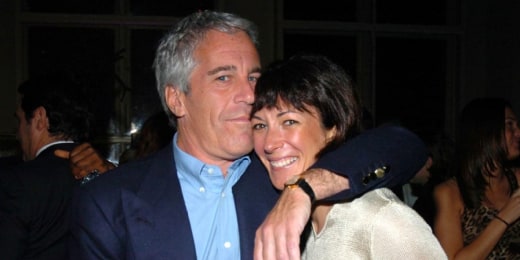
Report: Four women who have immunity in the Epstein case may know if there’s a client list
05:15
-
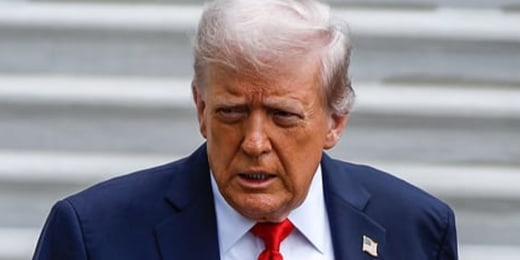
New NBC News Poll: 21% of Americans FURIOUS with Trump’s second term so far
10:19
-
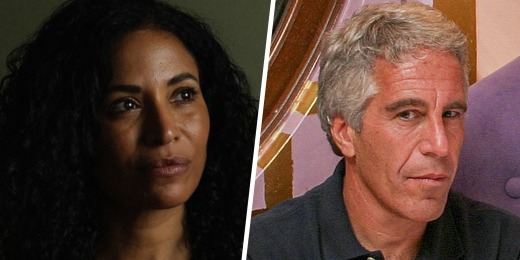
Epstein survivor confirms a new client list made by survivors is being put together
08:32
-
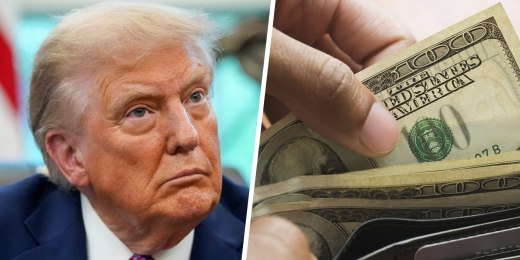
Trump’s disapproval hits 59% on handling of trade and tariffs
06:25
-
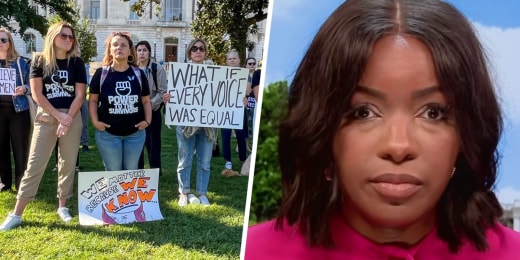
Survivors turn up the heat on Congress to vote for release of Epstein files
08:52
-
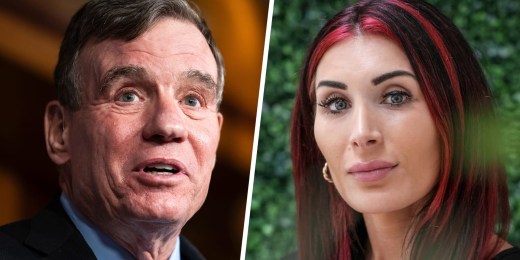
Former Rep. baffled as activist Laura Loomer prevents Dem Senator’s visit to spy agency
05:22
-
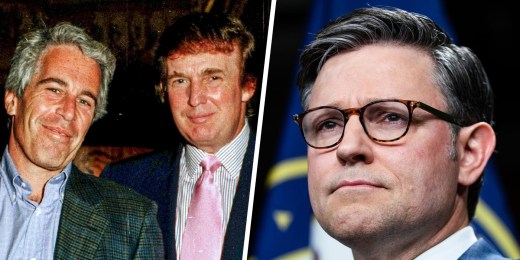
House Speaker claims Trump was an FBI informant in the Epstein case
10:40
-
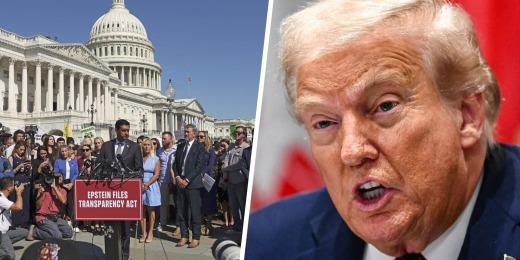
Bad news for Trump: Republicans join survivors, Democrats in pursuit of Epstein files
08:50
-
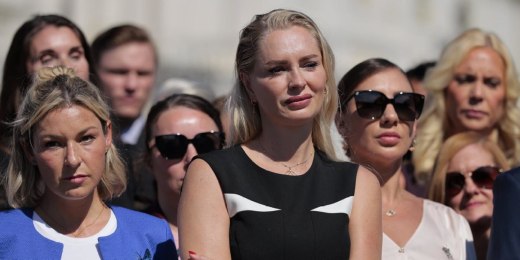
Survivors of Epstein deliver powerful demand for transparency to Trump administration
06:29
-
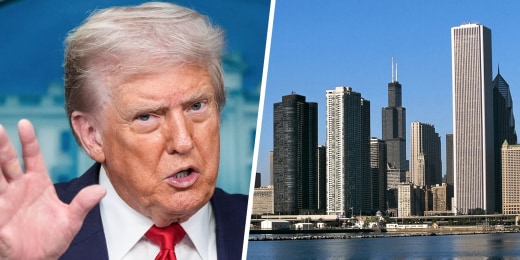
Trump threatens Chicago with mass deportations as Mexican Independence Day celebrations take place
04:51
-
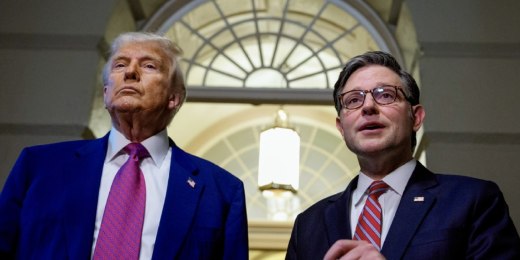
Pressure mounts on Trump, Speaker Johnson to release Epstein files after survivors news conference
07:08
-
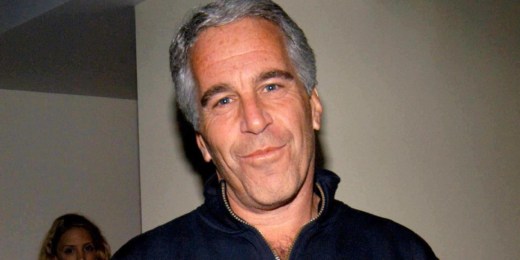
Exclusive: DOJ says names of two associates Epstein wired money to should stay secret
02:36
-

Prepare for inflation: Back-to-school prices soared, holiday gifts likely will too
03:36
-

Trump’s winning streak: Law professor breaks down his Supreme Court shadow docket victories
07:03
-
Now Playing

Trump’s economy takes a toll on middle-class Americans as his poll numbers on economics fall
08:03
-
UP NEXT

How social media can have an influence in attempted assassinations and mass shootings
11:38
-

What Congress should ask FBI Director Patel about in next week’s Epstein files deposition
06:23
-

Fmr. Vice President Harris shares internal debate on asking Biden to drop from race early in memoir
05:56
-

Trump changes tune on Epstein’s birthday book as Dem lawmakers push for files release
06:00
The Dictatorship
What Trump’s wildly different responses to two assassinations tell us
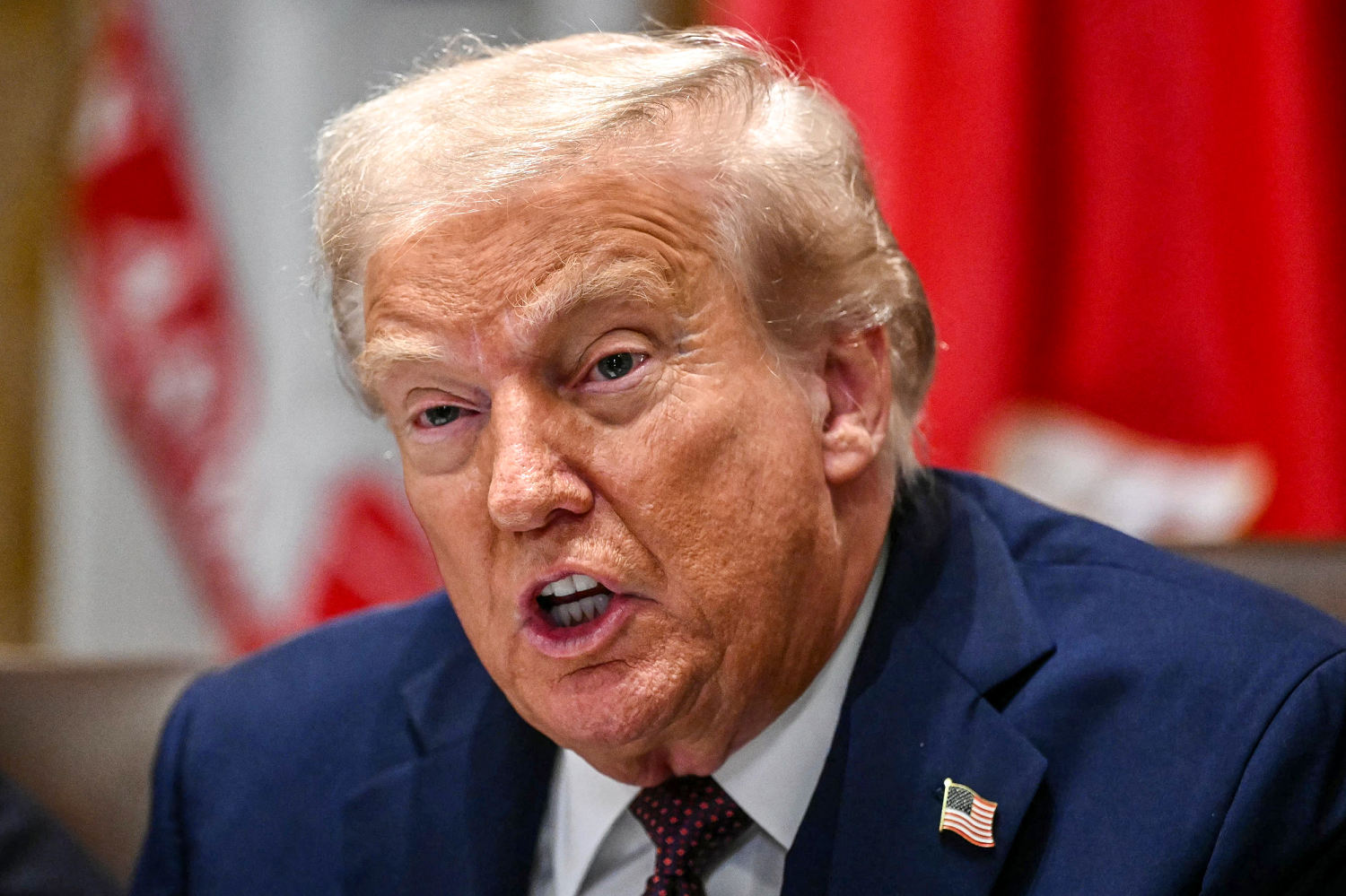
In his sharply differing reactions to two high-profile assassinations of political figures this year, the president of the United States has effectively encouraged the public to apply a partisan lens to the value of human life.
The two killings in question — a lone wolf assassination of former Minnesota House Speaker Melissa Hortman in June and the shooting of Turning Point USA founder Charlie Kirk at a Utah Valley University speaking event this past week — elicited very different kinds of treatment from the White House. President Donald Trump gave scant attention to Hortman’s killing, while he framed the killing of Kirk as a cataclysmic national tragedy and a political rallying cry for the right.
Republican lives matter more than Democratic lives, Trump is effectively telling his base.
Republican lives matter more than Democratic lives, Trump is effectively telling his base. And in a shocking comment on “Fox & Friends” on Friday, Trump appeared to use Kirk’s assassination to explicitly designate political violence a partisan issue too, by defending violent right-wing extremists as sharing his political goals of bringing down “crime” and left-wing extremists as “the problem.”
In response to the murder of Hortman, Trump offered a brief, impersonal condemnation of her killing on Truth Social, stating that “such horrific violence will not be tolerated.” He didn’t do much else. He did not offer a substantial eulogy for her, or deliver an address on political violence, as he did after Kirk’s death. Unlike former President Joe Biden, Trump did not attend the funeral. The day after Hortman’s killing, when Trump was asked if he had called Minnesota Gov. Tim Walz, he said, “I could be nice and call, but why waste time?” Trump suggested that part of the reason he didn’t want to call Walz was because he thought Walz was to blame for the killing, or at least the events leading up to it. That claim was nonsense. But peddling that narrative did allow Trump to divert attention from the fact that authorities found the suspected shooter had a hit list that named mostly Democratic politicians or figures tied to abortion rights, and that his close childhood friend said he voted for Trump.
In response to Kirk’s killing, Trump responded with tremendous urgency. He immediately issued an order to lower American flags to half-staff at the White House, all public buildings, U.S. embassies and military posts. He announced he would award Kirk the Presidential Medal of Freedom posthumously. He delivered a wrathful four-minute video address from the White House condemning Kirk’s assassination and promising vengeance against the left. As my colleague Anthony Fisher notesduring that address he made “wildly irresponsible assumptions about the then-unknown suspected killer’s motives. He completely ignored right-wing violence (like the kind he incited in Washington on Jan. 6, 2021), and he explicitly threatened to bring down the force of government on his political opponents.”

It was bad enough that Trump showed such divergent responses to the equally indefensible assassinations of Hortman and Kirk — and used the latter to promote the idea of a political crackdown on the left. But his appearance on Fox News on Friday morning involved what I found to be a genuinely jaw-dropping escalation, as he appeared to suggest that violence from the right was more defensible than violence from the left. Fox News host Ainsley Earhardt noted that there are radicals on both the right and the left and expressed concern about people cheering for Kirk’s death before asking Trump, “How do we fix this country?” He replied:
I’ll tell you something that’s going to get me in trouble, but I couldn’t care less. The radicals on the right oftentimes are radical because they don’t want to see crime. They don’t want to see crime. They’re saying, ‘We don’t want these people coming in. We don’t want you burning our shopping centers. We don’t want you shooting our people in the middle of the street.’ The radicals on the left are the problem. And they’re vicious, and they’re horrible, and they’re politically savvy.
What Trump appears to be saying is that left-wing radicals are a problem, while right-wing extremists are, in essence, part of his political project and therefore don’t deserve condemnation — or at least not the kind of condemnation that those on the left do. He is effectively telegraphing the idea that a certain degree of political violence on the right could be acceptable — or at least should be seen as politically sympathetic and well-intentioned. As right-wing extremists are reactivating and rallying around Kirk’s death as a pretext for revenge against the left, Trump’s new statement echoes his “stand back and stand by” order to the Proud Boys in 2020 before they stormed the U.S. Capitol on Jan. 6. It would be reasonable in this context for right-wing extremists to surmise that Trump is again signaling that he could be lax on enforcement or try to offer them some kind of immunity — just as he did by commuting the sentences of Proud Boys and pardoning their leader.
In a democracy, all political violence should be considered entirely unacceptable, no matter the ideology of the person committing the act or on the receiving end of it. Both the deaths of Hortman and Kirk were terrible tragedies and completely unjustifiable. But in his selective mourning and politicization of their deaths, Trump suggested one tragedy — more importantly, one type of tragedy — mattered more.
Zeeshan Aleem is a writer and editor for BLN Daily. Previously, he worked at Vox, HuffPost and Blue Light News, and he has also been published in, among other places, The New York Times, The Atlantic, The Nation, and The Intercept. You can sign up for his free politics newsletter here.
-
Uncategorized10 months ago
Bob Good to step down as Freedom Caucus chair this week
-

 The Josh Fourrier Show10 months ago
The Josh Fourrier Show10 months agoDOOMSDAY: Trump won, now what?
-

 Politics7 months ago
Politics7 months agoFormer ‘Squad’ members launching ‘Bowman and Bush’ YouTube show
-

 Politics10 months ago
Politics10 months agoWhat 7 political experts will be watching at Tuesday’s debate
-

 Politics10 months ago
Politics10 months agoHow Republicans could foil Harris’ Supreme Court plans if she’s elected
-

 The Dictatorship7 months ago
The Dictatorship7 months agoPete Hegseth’s tenure at the Pentagon goes from bad to worse
-

 The Dictatorship7 months ago
The Dictatorship7 months agoLuigi Mangione acknowledges public support in first official statement since arrest
-
Economy10 months ago
Fed moves to protect weakening job market with bold rate cut




